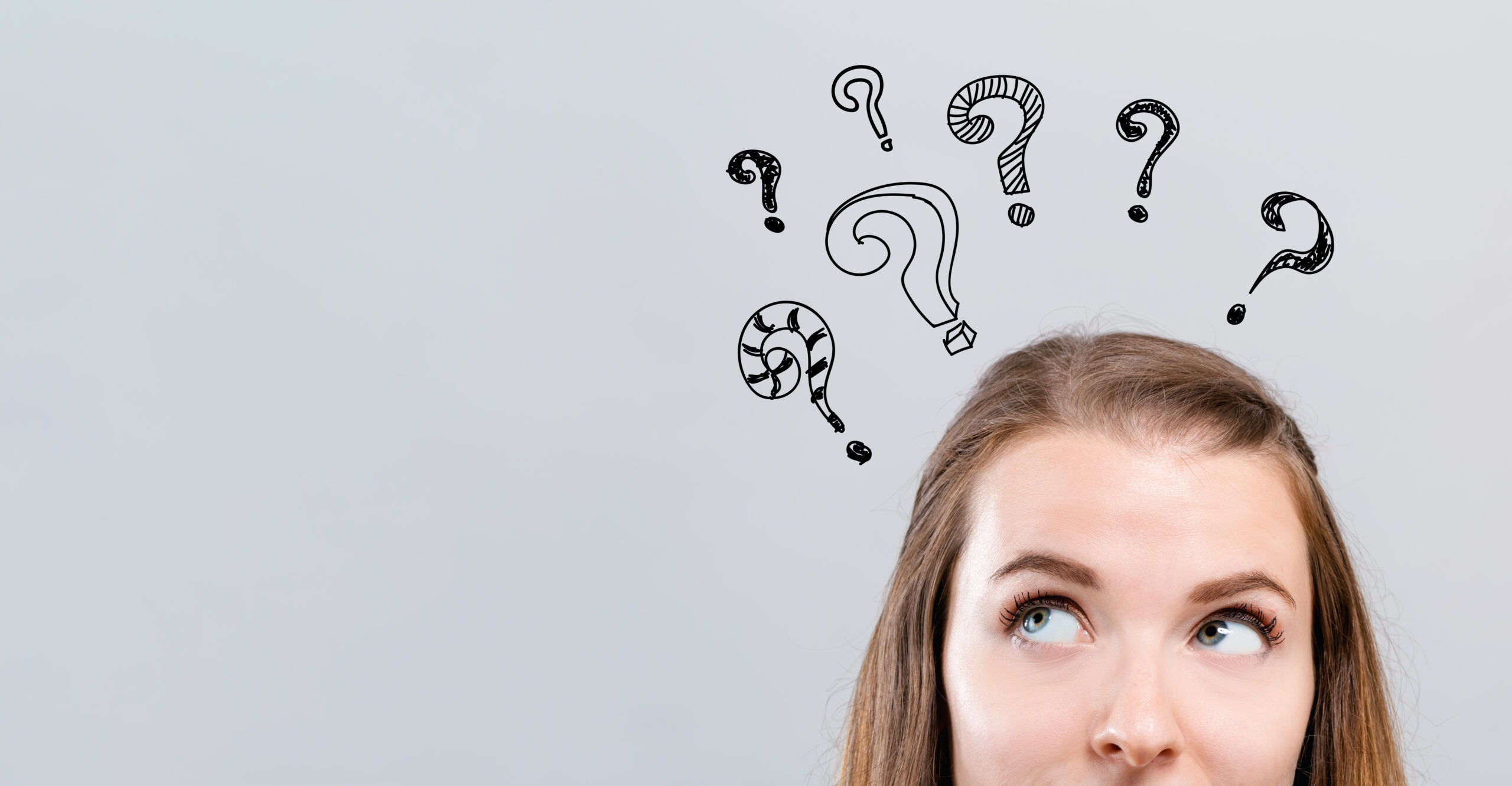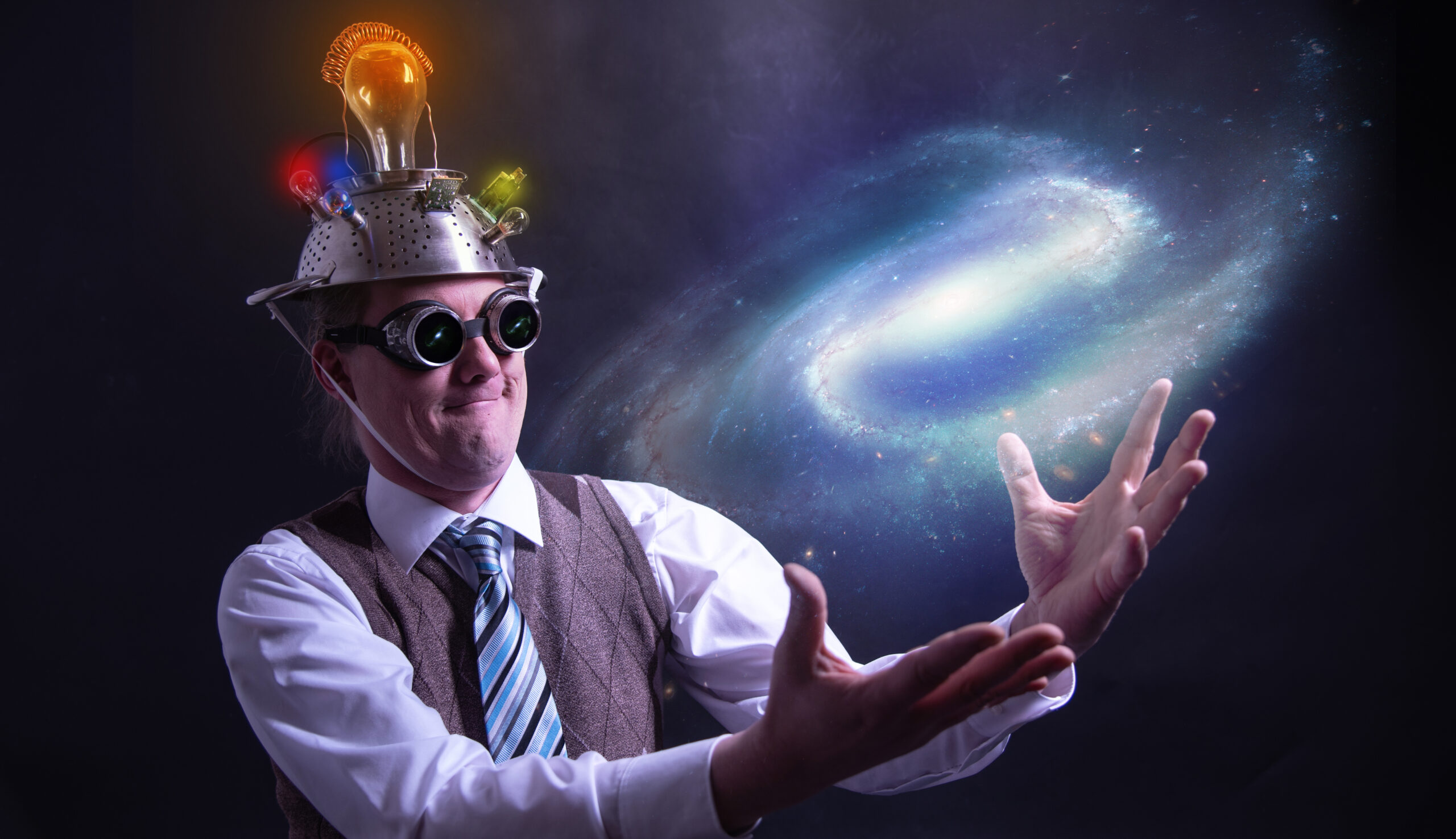As we look back on this absolutely, God awful, traumatic, kill-it-with-fire year, and look with little faith at the world getting much better, I want to remind you of one of the most important things you can possibly know, especially right now: You don’t know a Goddamn thing.
Most pertinently, you don’t know which outcome of the world’s circumstances will have the best long term impact on you, or the world at large.
You don’t know what scientific discovery, or what election result will be good for the world. You don’t know if robots will overtake us in 20 years, or if they’ll all just become the best lovers we’ve ever had.
You don’t know that getting fired won’t ultimately help you reprioritize. You don’t know that the cost of your dog’s kidney surgery won’t cause you to develop a habit of not being a dipshit about your money for the first time in your life. You don’t know that getting really sick out of your butt for two weeks won’t give you the lease on life that you’ve needed for the last decade.
You don’t know the real end result of any of this shit. You don’t know, you don’t know, you don’t know.
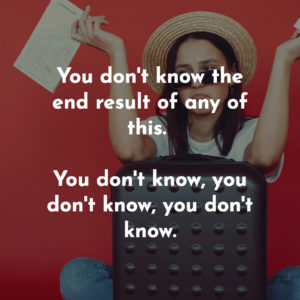
So you might as well maintain faith in a positive long term result.
This exact sentiment is super popular in Christianity as, more or less, “Whatever happens is God’s plan, and He has a reason for it. So like, no matter what, chill.”
This is a super powerful belief because it makes your hope bulletproof. Nothing can destroy your life because you always maintain faith that the end result will somehow still be positive. Mom got cancer? God’s plan. Get hit by a bus? God’s plan. Some guy called you a racial slur and farted in your face? God’s plan.
Without this, we often say things like, “If this goes sideways, I’m going to be so fucked,” or “I have to get this job, or my life will be terrible,” or “This will be the worst thing I’ve ever faced.” This perspective–where we think we know the ultimate end result of a supposed “worst case scenario” is one of the most toxic thought patterns that we have. It causes unnecessary anxiety, negativity, and as a result, an ongoing lack of hope and therefore, action.
“God’s plan” keeps you positive, and motivated to work in a more helpful direction. It keeps you focused on a north star even when your world is flipped upside down. It keeps you hopeful while also enforcing a humility that we generally suck at enforcing.
With all of that said, for a variety of reasons, Christianity isn’t for everyone–myself included. So let’s try an alternative:
My name is Will, and I’d like to speak with you about my own religion based on hope, humility, and at least trying to not be an asshole.
The Beauty of Agnosticism
Many of you are probably kind of agnostic by default. If religion is something you don’t really think about, or don’t have any strong opinions about, the closest thing you often default to is agnosticism.
But fuck that indifferent, default, “I guess this is what I am,” agnosticism.
I want to show you how to be a practicing, diligent, hardcore agnostic–how to worship our God, who is called Shrug. To worship Shrug is to live life with a beautiful default of uncertainty–of constantly reminding yourself that “Yeah, but we don’t actually know anything.” To be a practicing agnostic is to fully and powerfully accept the chaos of the universe.
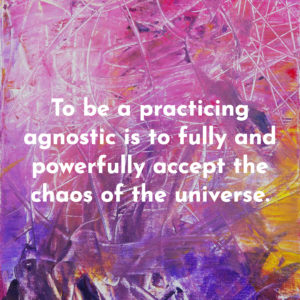
This enforces humility, understanding, and not being an insufferable know-it-all asshole. It fucking rules.
And unlike other belief systems, you don’t need a giant book defining the laws of agnosticism. You just need to know to follow the three laws that make it work. Here they are:
1) Repeat the Mantra: “I don’t know.”
A practicing agnostic doesn’t arrive at their lack of knowledge by indifference. We raise our hands, stand up, and say, “I don’t know!” and we do that because we see the power in this.
Agnosticism enforces that exact same humility as Christianity. “Thy will be done” is the exact same thing as saying, “Well fuck bro, who knows what’s going to happen.”
But it manifests itself a little bit differently.
When we watch the earth burst into flames, or a family member gets sick, or we break our leg, practicing agnostics can accept it not because we have faith that God has a plan for us. We accept it because we know we can’t know that the end result of any of those things will be bad.
We don’t know that the solutions to climate change might both save the world and drastically improve it. We don’t know if a family member getting cancer might make them actually live for the first time since they were 6. We don’t know that that broken leg might finally allow us the discipline to sit down and write that novel that’s been in our head for the last five years.
This relieves you of your fear of the worst case scenario because, truly, what the fuck is “a worst case scenario?” How could you even know that? The entire concept of a worst case scenario is absurd to someone who looks at everything in life, and says, “Fuck man, I don’t know. Guess we’ll see what happens.”
A practice of agnosticism is a practice in humility, openness, and curiosity. But it only works if you follow the rest of the rules as well.
2) Do Your Best to Not Be an Asshole

One potential danger of agnosticism is in the approach to morality. If we can’t know what the best possible course is, and what the ultimate end result will be of any action, then is there any reason to try to do the right thing? How do you know what the right thing even is? How can you know what action will have the best end result?
You can’t know. But don’t be an asshole. Try your best anyway.
Yes, it’s totally possible that your attempt at the best, most moral decision will somehow end in you hitting someone’s cat with your car. It could totally happen. The universe is chaos.
More often than not though, trying to do the right thing will yield a more positive end result. There’s a few reasons for this:
A) We can’t know almost anything, but we can hazard decent guesses, and odds are, these will yield better results than just being a selfish asshole all the time. You might as well play the numbers game of trying to not being a piece of shit.
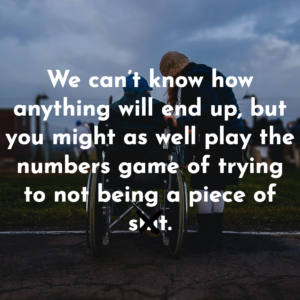
B) Usually, when you try to do the right thing, other people can see this. Again, not always. Sometimes, it’ll end in some sitcom hijinks, and others will hate you more when all you were trying to do is bring old Mrs. Potter some dinner, and gosh darn it, you didn’t realize it was poisoned!
But generally, others will take note, and your life will be better as a result.
C) If you know you did your best to do the right thing, you can live much better with even a terrible end result. You can look at yourself in the mirror, and know that even if the end result is a dead Mrs. Potter, you were just trying to help.
3) Maintain Hope
The other crucial part of agnosticism is in maintaining hope in all situations. You really don’t know what you’ll learn, or what somebody else will learn, or be motivated to do as a result of the really seemingly bad things that have happened in this world. Progress comes from a million places, and you have no idea when it’s coming.
So since you can’t know what’s going to happen, hope is a choice you make. If you do make the choice to maintain hope for a positive result of the world’s complete and utter chaos, then you’ll be motivated to make that more positive result happen, and you’ll likely hit fewer cats with your car.
This is a vital law of agnosticism. Uncertainty without enforced positivity is absolute hell. It creates a violent cesspool of anxiety, and your primary activities will be shrugging and crying. Agnosticism without hope totally sucks for this reason.
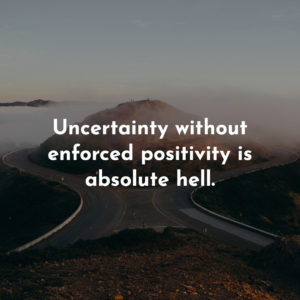
Now, is this the same thing as knowing the best will happen? Does this mean that you should know that your life will end up amazing even as you’re eaten alive by fire ants?
Fuck that. No. This is agnosticism. You don’t know anything, and that includes all of the good shit that maybe could be coming.
Maintaining hope is about knowing that anything could happen, and hoping for the best because it’s the best way to live. It’s about believing in your ability to make the best of a bad situation. It’s about maintaining faith that you can find a path forward that’s good for you.
It’s really just about not being a Debbie Downer, because that’s a stupid choice if you don’t know anything.
So as you face this holiday season, and you look forward at the questionable future of the world, don’t tell yourself that everything will definitely be all right. That’s just fucking lying to yourself.
Instead, tell yourself that you just don’t know.
You can maintain hope because of the magic of uncertainty. In times of distress, uncertainty allows you to believe in the possibility of something better. In times of prosperity, it allows you to not get your hopes up like a dipshit.
You don’t know what’s being invented. You don’t know what battles are being won. You don’t know what battles have yet to be won, and what the end impact of all of that will be.
So celebrate Santa, or have your eight crazy nights, and kiss whoever is closest to you when the clock strikes midnight. Do your best to make the best of whatever situation you or the world is in, and maintain hope that it’s going somewhere better.
And the next time the world seems to be hurtling towards a big pile of shit, and you think, “Oh man, the world is going to shit,” remember this: You don’t actually know that.
And may Shrug bless you.


